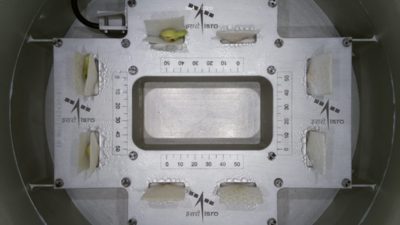Isro has achieved a remarkable feat by successfully germinating cowpea seeds in microgravity conditions during their PSLV-C60 POEM-4 mission.
The successful experiment utilised the Compact Research Module for Orbital Plant Studies (CROPS), demonstrating substantial progress in understanding how plants grow in space conditions.
VSSC developed the CROPS payload, which functions as an automated system specifically created to research seed germination and plant survival in microgravity environments.
The research involved eight cowpea seeds placed in a regulated closed-box setting with precise temperature control, establishing essential groundwork for agricultural studies beyond Earth.
The system features advanced monitoring equipment to observe plant development continuously. This includes high-definition cameras, sensors for oxygen and carbon dioxide levels, humidity detectors, temperature monitors and soil moisture measuring devices.
As part of the PSLV Orbital Experiment Module (POEM-4), this initiative reflects Isro’s dedication to scientific advancement. The mission encompasses 24 sophisticated payloads, developed jointly by Isro and academic institutions, showcasing India’s expanding space research capabilities.
The successful germination of cowpea seeds within four days, with leaf development anticipated soon, represents a significant scientific achievement. CROPS is designed as a multi-stage initiative aimed at establishing sustainable space-based agricultural methods.
This development presents significant potential for future space expeditions, particularly for extended missions and establishing human settlements on other celestial bodies.
Isro’s demonstration of successful plant growth in extreme conditions advances the development of space agriculture, which is essential for self-sufficient space habitats.
This success strengthens India’s position in international space exploration whilst advancing human potential for existence beyond Earth.




